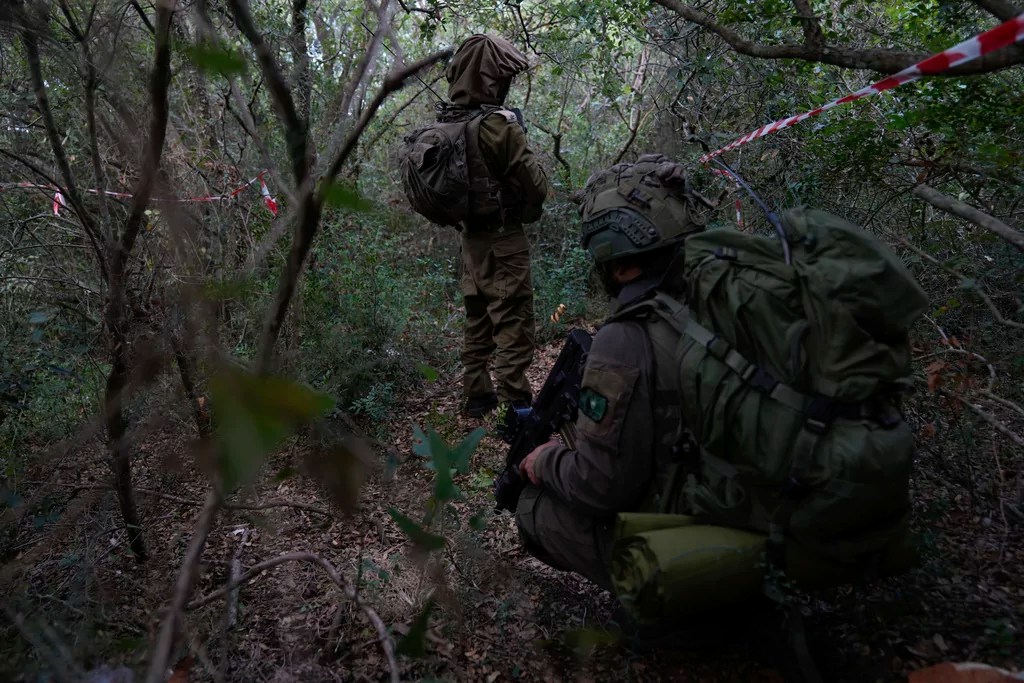


The ceasefire between Israel and Hezbollah took effect at 4 a.m. local time on Wednesday, but experts remain skeptical about its viability.
President Joe Biden announced on Tuesday that Israel and Hezbollah had agreed to a 60-day ceasefire, including the withdrawal of Israeli ground forces from Lebanon and the withdrawal of heavy Hezbollah weapons north of the Litani River. It reflected the same deal that ended the 2006 Israel-Hezbollah War, though Hezbollah quickly broke the terms that time around. This deal allows for better enforcement by the Lebanese military and a panel of five countries, led by the United States.

The New York Times reported residents in Beirut firing guns into the air in celebration as the ceasefire took effect at 4 a.m.
While both sides welcomed the ceasefire, experts and analysts are split on its viability. While both sides are eager to cease hostilities to regroup, both sides have incentives to break the ceasefire.
Foreign Policy noted that the two sides have near-zero trust that the other will keep their part of the bargain, and Israel is emboldened by its success over the past three months in its ability to degrade Hezbollah through direct strikes. Hezbollah, meanwhile, faces drastic damage to its prestige by failing to assist its ally in the Gaza Strip, Hamas.
David Daoud, a senior fellow with the Foundation for the Defense of Democracies, expressed heavy skepticism about the wisdom of the ceasefire from Israel’s perspective, warning that the levers to keep Hezbollah in place were too weak.
“This deal is only a cosmetic upgrade from UN Security Council Resolution 1701,” he said, referring to the resolution that ended the 2006 war. “It repeats that resolution’s failure of depending on Lebanon to act against Hezbollah, when Lebanon has consistently demonstrated both its unwillingness and its inability to act against the group. That, coupled with caveats on Israeli freedom of action in Lebanon, sets the stage for Hezbollah’s slow and patient regeneration in time.”
Joe Truzman, senior research analyst and editor at FDD’s Long War Journal, gave the ceasefire a more positive appraisal, echoing Israeli Prime Minister Benjamin Netanyahu’s view that the ceasefire was vital to isolate Hamas and help bring the war in Gaza to a speedier conclusion.
“Hamas is likely to publicly support Hezbollah’s decision to accept a ceasefire with Israel. However, the Gaza-based terrorist group is also aware that an end to hostilities in Lebanon will deal an unwanted blow to Hamas itself, as well as its Palestinian allies, Hezbollah and the broader Iranian-led axis,” he said. “Furthermore, a ceasefire in Lebanon could weaken Hamas’s position, potentially granting Israel the leverage required to dictate the terms of a resolution to the war in Gaza.”
“The war against Hezbollah is not over, but Israel achieved a significant victory in Lebanon that may lead to a positive outcome in Gaza,” Truzman added.
The war in Lebanon went contrary to most expectations, with the expected titanic clash instead turning into a one-sided battering of Hezbollah. The escalatory phase of the war in September was inaugurated when Israel killed or wounded thousands of Hezbollah members through the simultaneous detonation of their pagers and walkie-talkies. This was followed by a blistering air campaign that killed Hezbollah’s entire leadership, including the charismatic leader Hassan Nasrallah, and the destruction of a large portion of the group’s missile arsenal.
CLICK HERE TO READ MORE FROM THE WASHINGTON EXAMINER
Major clashes between Israeli and Hezbollah fighters reminiscent of the 2006 war were nowhere to be found in the current round of fighting, with Hezbollah militants largely opting to avoid direct combat. The expected massive missile bombardment that would overwhelm Israeli air defenses never came.
While Netanyahu hinted in his address that the IDF was stretched to its limit and needed a break from fighting, Hezbollah emerged as the clear loser of the war. Aside from the destruction of much of its weapons arsenal and the death of its senior leadership, it must also grapple with the complete loss of the prestige it gained by dealing Israel one of its first major defeats in 2006.
The Lebanese Health Ministry said 3,768 people have been killed in Lebanon and 15,699 wounded since October 2023. Israel suffered 45 civilian deaths and at least 73 military deaths, Reuters reported.
